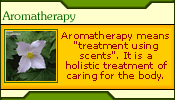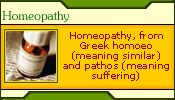|
This is also known as full bath. It is administered in a bath tub
which should be properly fitted with hot and cold water connections.
The bath can be taken at cold, neutral, hot, graduated and alternate
temperatures.
COLD IMMERSION BATH
This may be taken for four seconds to 20 minutes at a temperature
ranging from 100C to 23.80C. Before entering the bath, cold water
should be poured on the patient's head, chest and neck and the head
should be protected with a cold moist towel. During the bath, the
patient should vigorously rub his or her body. After the bath the
body should be quickly dried and wrapped up in a blanket. If the
climate is favourable, moderate exercise should be undertaken.
This bath helps to bring down fever. It also improves the skin
when taken for five to 15 seconds after a prolonged hot bath, by
exhilarating circulation and stimulating the nervous system.
This bath should not be given to young children or very elderly
persons, nor be taken in cases of acute inflammation of some internal
organs such as acute peritonitis, gastritis, enteritis and inflammatory
conditions of uterus and ovaries.
GRADUATED BATH
The patient should enter the bath at a temperature of 310C. The
water temperature should be lowered gradually at the rate of 10C
per minute until it reaches 250C. The bath should continue until
the patient starts shivering. The graduated bath is intended to
avoid nervous shock by sudden plunge into the cold water. This bath
is often administered every three hours in cases of fever.
It effectively brings down the temperature except in malarial fever.
Besides, it also produces a general tonic effect, increases vital
resistances and energises the heart.
NEUTRAL IMMERSION BATH
This bath can be given from 15 to 60 minutes at a temperature ranging
from 260C to 280C. It can be given for long duration, without any
ill-effects, as the water temperature is akin to the body temperature.
The neutral bath diminishes the pulse rate without modifying respiration.
This treatment is the best sedative. Since the neutral bath excites
activity of both the skin and the kidneys, it is recommended in
cases relating to these organs. It is also beneficial for cases
of organic diseases of the brain and spinal cord, including chronic
inflammatory conditions such as meningitis, rheumatism and arthritis.
A neutral immersion bath taken for 30 to 60 minutes is highly beneficial
in general dropsy, due to cardiac or renal diseases. It also helps
those suffering from multiple neuritis, alcoholism and other narcotic
habits, chronic diarrhoea, peritonitis and chronic affections of
the abdomen. In such cases the bath may be given daily for 15 to
30 minutes. This bath is also useful in the toxemic conditions caused
by dyspepsia and pruritus. The neutral bath should not be prescribed
in certain cases of eczema and other forms of skin diseases where
water aggravates the symptoms, nor in cases of extreme cardiac weakness.
HOT IMMERSION BATH
This bath can be taken from two to 15 minutes at a temperature
from 36.60C to 400C. Generally this bath is started at 370C and
the temperature is then gradually raised to the required level by
adding hot water. Before entering the bath, the patient should drink
cold water and also wet the head, neck and shoulders with cold water.
A cold compress should be applied throughout the treatment. This
bath can be advantageously employed in dropsy when there is excessive
loss of tone of the heart and blood. This bath also relieves capillary
bronchitis and bronchial pneumonia in children. It relieves congestation
of the lungs and activates the blood vessels of the skin muscles.
The bath should be terminated as soon as the skin becomes red.
In pneumonia and suppressed menstruation, the bath should be administered
at 37.70C to 400C for about 30 to 45 minutes. This bath should be
given when the menstruation is due and may be repeated for two to
three days in succession. In dysmenorrhoea, this bath should be
given at 380C to 44.40C for 15 minutes.
In chronic bronchitis a very hot bath taken for 5 to 7 minutes
should be accompanied with rubbing and friction. This relieves congestion
of the mucous membrane and provides immediate relief After the bath,
oil should be applied to the skin if necessary.
The hot bath is a valuable treatment in chronic rheumatism and
obesity. It gives immediate relief when there is pain due to stones
in the gall bladder and the kidneys. The hot bath should not be
taken in cases of organic diseases of the brain or spinal cord,
nor in cases of cardiac weakness and cardiac hypertrophy.
|


















